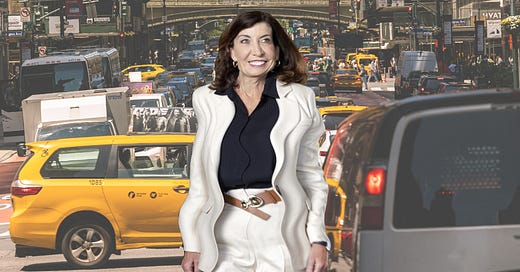Along for the Ride #233
new york's congestion pricing mayhem, cruise returns to texas, and lots of pup pics
Heya friends, happy Friday!
First of all, happy pride month! This week’s edition is packed, but I wanted to start by sharing some resources about the overlap between queerness and transportation 🌈:
Queer mobilities: critical LGBTQ perspectives of public transport spaces (Journal of Transportation)
Why Trans and Queer visibility on public transport matters (ITDP)
Unbound expressions: towards a queer urbanism (Architectural Review)
Not transportation related, but here is a list of over 100 organizations supporting trans people across all 50 states in the US—donations encouraged 🏳️⚧️ (Them)
Go tell somebody you love ‘em just for the heck of it. And after that, dive into the news below ❤️
New York’s congestion pricing seemed so close
I had originally been excited to share an article written by my friend John about the long and winding road it took to bring congestion pricing to NYC. However this week congestion pricing has taken on another swerve.
And so, this week’s big welp / wtf / sad vibes are brought to you by New York governor Kathy Hochul who has decided to indefinitely delay congestion pricing that was supposed to launch later this month. For context, New York City’s car traffic has soared and now eclipses pre-pandemic levels and would have offered $15 billion in funding for transit improvements including station accessibility. *screams into pillow crying for modal shift*
Colorado’s plan to decrease congestion? Build fewer highways
At the very least, we have a glimmer of hope elsewhere. Colorado adopted a formal rule that makes the state transportation agency, along with Colorado’s five metropolitan planning organizations, demonstrate how new projects, including highways, reduce greenhouse gas emissions. If they don’t, the agencies could lose funding. Within a year of the rule’s adoption in 2021, Colorado’s Department of Transportation (CDOT) canceled two major highway expansions and shifted $100 million (!!) to transit projects.
China approves public testing of AVs
The country has approved nine automakers to test with Level 3 advanced autonomous driving technologies on public roads. Auto execs say this is a step closer to allowing level three vehicles to be sold to and used by individual buyers and fleet operators.
Cruise was set to launch its services in Dallas at the end of last year, which was delayed after Cruise grounded its entire fleet. This new launch will see all vehicles in Dallas operated by human drivers within a limited geographic area. Cruise says its performance will be measured against predetermined safety benchmarks, and once those are met it will consider expanding to larger geographies.
Ford’s CEO says driver’s won’t need to watch the road
In merely two years, Ford says its BlueCruise program will be achieve the thing every auto OEM has been saying for years! That our cars will become rolling offices (lest somebody ever dream of leaving work at work). And yes, in case you’d forgotten, BlueCruise is currently under investigation by US safety regulators after being involved in fatal crashes.
Zoox plans to expand to Miami and Austin
Zoox will soon test its technology in five US cities (expanding beyond Seattle, San Fransisco, and Las Vegas). Zoox has not started any commercial operations yet, but is considering San Francisco and Las Vegas as potential options.
Street art and the transformation of liminal spaces for social change
“The betwixt and in-between spaces in urban environments help define the zeitgeist. In transforming liminal spaces into memorials, public art provides an opportunity to assert the voice of the people and helps to catalyze social change. In recent years, the informal and formal claiming of urban liminal spaces has been central to the Black Lives Matter (BLM) movement. This article explores the use of informal placemaking and how claiming liminal space can lead to transformative social reactions for sustained social change in subtle and direct ways.”
This article discusses a new book, Killed by a Traffic Engineer: Shattering the Delusion that Science Underlies Our Transportation System (Island Press) from University of Colorado-Denver civil engineering professor Wesley Marshall. It discusses how dangerous street design is a root cause of the US road safety crisis.
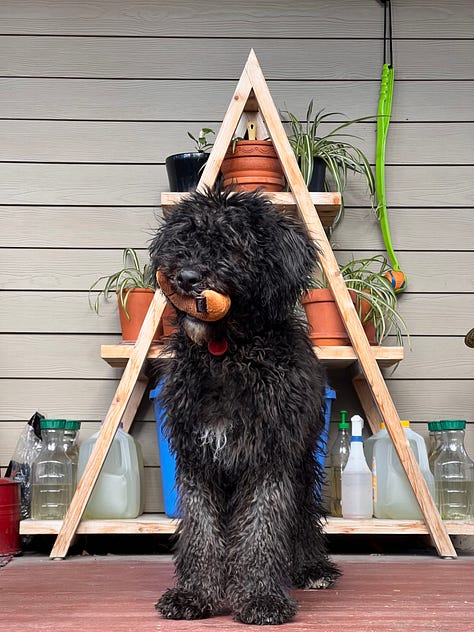
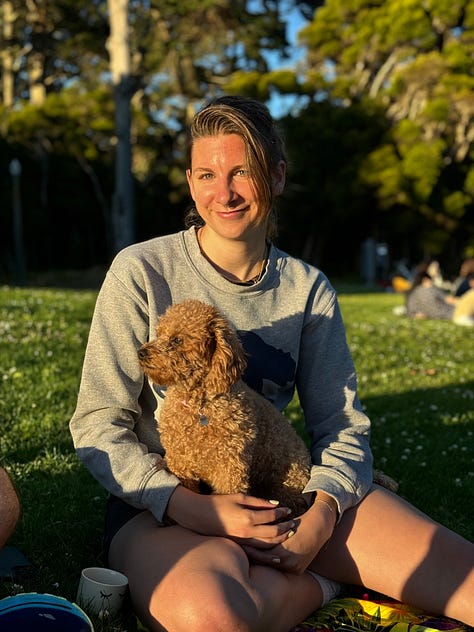

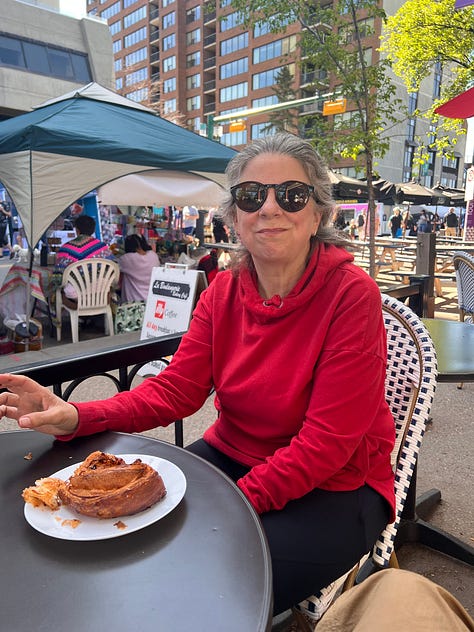
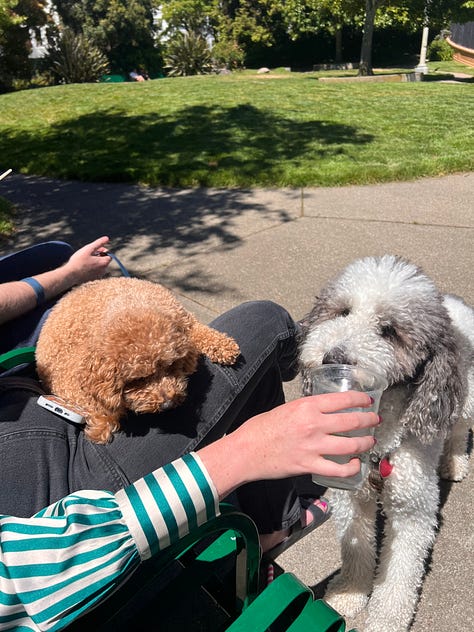
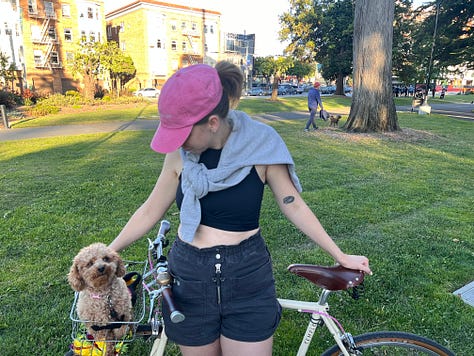
I spent the weekend in Calgary celebrating my mom’s birthday (pictured above). I am very much so her mini-me, and I am very grateful to have a such a fun mom who shaped me into the croissant-loving human bean I am today. It was also a real treat to be in Canada in above-freezing weather! I got to meet the new family dog (Paddy, pictured above with a croissant dog toy in his mouth) and enjoy long walks around the river (feat. lots of canadian geese).
My friend Claire shared this “week without driving challenge” and I thought plenty of readers here might be interested in partaking. It is organized by America Walks, and is urging elected officials, public servants, business owners, and individuals to spend a week sans car. In their own words:”We want those who have the option to drive regularly to understand the barriers and challenges that non-drivers face when trying to move safely in their communities, and work with non-drivers to create better communities for all.”
Finally, leaving you with this poem from Jacqueline Suskin that resonated heavily with me this week.
That’s all from me. Have a beautiful weekend friends.
Sarah
If you’d like to support my work and this newsletter, please consider becoming a member of the San Francisco Bicycle Coalition or making a donation.

